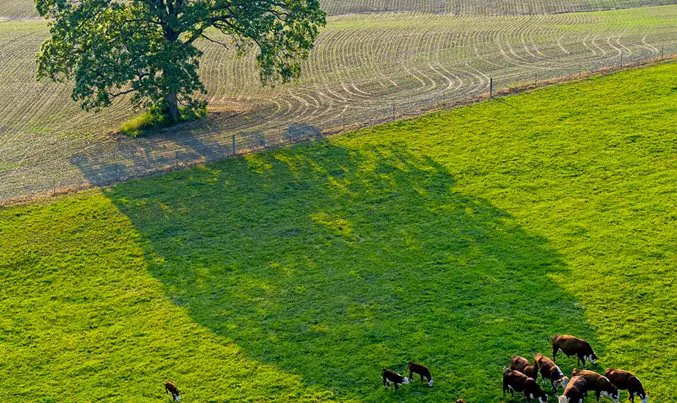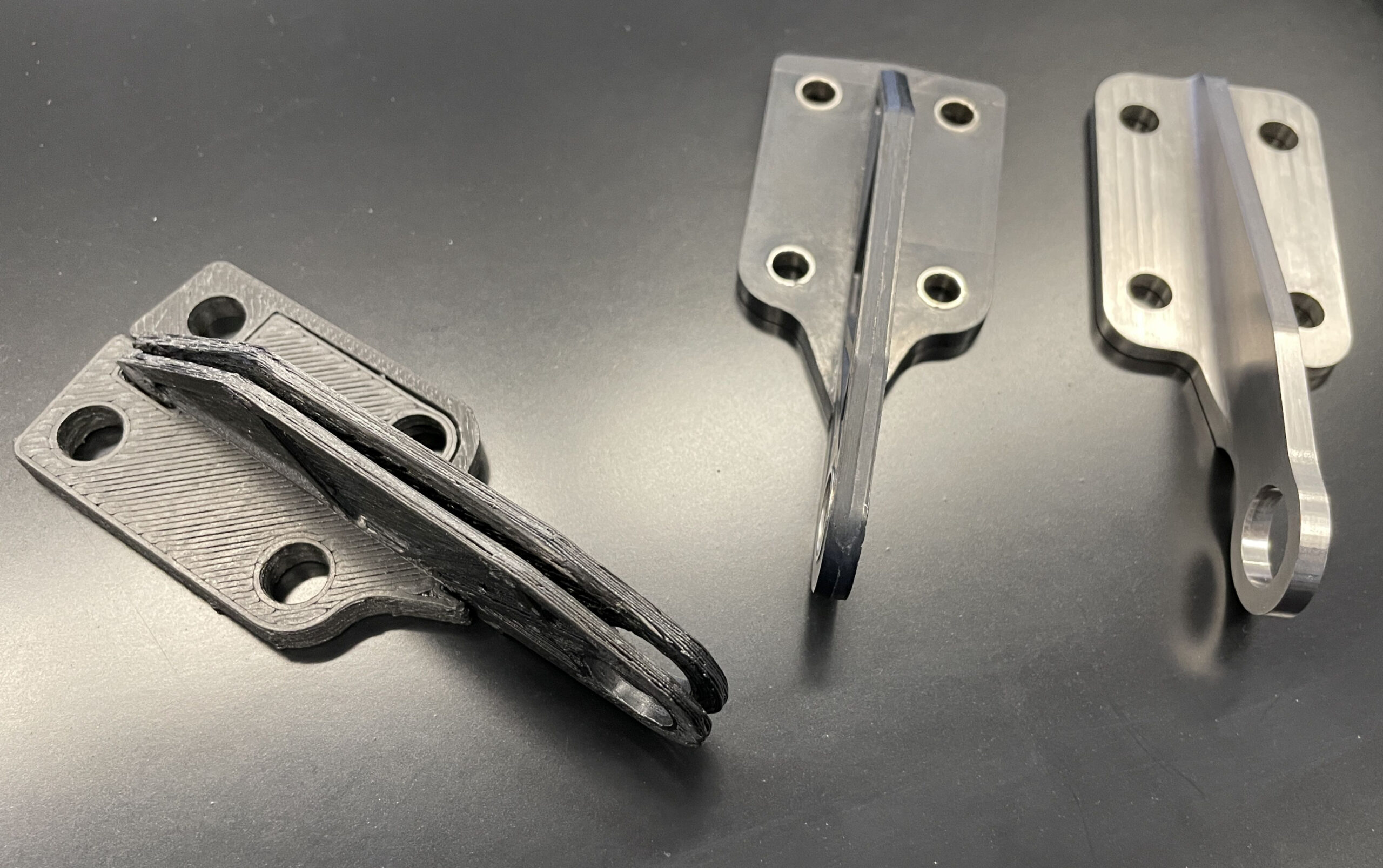Sustainable farming technology has become a crucial aspect of modern agriculture, as it aims to ensure efficient and environmentally friendly practices. With the global population on the rise, the demand for food and resources is increasing exponentially. To meet these demands, farmers and researchers are constantly seeking innovative solutions. This article explores the importance of balancing innovation and plant agriculture in the context of sustainable farming technology.
The Importance of Balancing Innovation and Plant Agriculture
Innovation in farming technology has revolutionized the way crops are grown, harvested, and processed. However, it is equally important to maintain the balance between innovation and traditional plant agriculture practices. While technology brings numerous benefits, it should not overshadow the significance of sustainable farming methods that have been passed down through generations. Striking a balance is crucial to ensure the preservation of our environment and the health of consumers.
Advancements in Farming Technology
In recent years, there have been significant advancements in farming technology. Precision agriculture, for example, utilizes sensors, drones, and satellite imagery to monitor crop health, soil conditions, and irrigation needs. This allows farmers to make informed decisions regarding fertilizer application, pest control, and water management. Additionally, automation and robotics have streamlined various agricultural processes, reducing the need for manual labor and increasing efficiency.
The Impact of Technology on Horticulture
Horticulture, the science and art of cultivating plants, has greatly benefited from sustainable farming technology. Vertical farming, for instance, allows plants to be grown in stacked layers, optimizing space utilization and reducing water consumption. Controlled environment agriculture (CEA) integrates advanced technologies such as hydroponics, aeroponics, and aquaponics to grow crops in controlled environments. These methods minimize resource usage, increase crop yields, and provide fresh produce year-round.
Medical Uses of Sustainable Farming Tech
Sustainable farming technology not only impacts food production but also plays a vital role in medical advancements. Many plant-based medicines and supplements are derived from crops cultivated using sustainable farming practices. With the help of innovative technology, pharmaceutical companies can cultivate medicinal plants efficiently and sustainably. This ensures a consistent supply of quality plant-based medicines, benefiting both patients and the environment.
Food Uses of Sustainable Farming Tech
The utilization of sustainable farming technology in food production has transformed the industry. Vertical farming, hydroponics, and aquaponics have enabled urban areas to become self-sufficient in terms of fresh produce. Additionally, the use of organic fertilizers and integrated pest management techniques ensures that the food produced is not only sustainable but also healthy for consumers. Sustainable farming tech has also facilitated the development and growth of urban agriculture, allowing for local food production and reducing carbon emissions associated with transportation.
Research and Development in Sustainable Farming Tech
Continuous research and development in sustainable farming technology are essential to drive innovation and address the challenges faced by modern agriculture. Scientists and researchers are exploring ways to enhance crop resilience to climate change, improve water and nutrient management, and reduce the environmental impact of farming practices. Investments in research and development are crucial to finding sustainable solutions that can meet the growing demands of a rapidly changing world.
Research and development in the cannabis industry have significantly aided in the cultivation of high-quality and potent cannabis seeds. With the legalization of cannabis in many countries, including the USA, growers are constantly seeking innovative solutions to optimize their yields while maintaining the quality of their products. When it comes to cannabis seeds usa | Growers Choice Seeds is a company at the forefront of the cannabis seed sale industry, with a wide variety of strains of cannabis seeds that are resistant to pests, diseases, and environmental stresses. Through continuous research and development, the cannabis seed industry is evolving, delivering new and improved cannabis strains for growers and consumers alike.
Promoting Sustainability in Marijuana Agriculture through Innovative Technologies and Practices
Marijuana cultivation has become a lucrative business in many countries where the plant has been legalized for medicinal and recreational purposes. However, the traditional methods of farming marijuana are often associated with high energy consumption, carbon emissions, and water wastage. Sustainable farming technology has emerged as a potential solution to address these challenges and promote environmentally friendly practices in marijuana plant agriculture.
One of the most promising technologies in marijuana plant agriculture is LED lighting. The use of LED lights in indoor marijuana farming has shown significant reductions in energy consumption and associated carbon emissions. LED lights also have a longer lifespan and produce less heat, reducing the need for cooling systems. Additionally, precision agriculture techniques such as automated nutrient dosing and irrigation systems can optimize resource usage and reduce water wastage.
Moreover, the utilization of organic fertilizers and pest management techniques in marijuana plant agriculture can significantly reduce the environmental impact of the industry. Organic fertilizers derived from compost, manure, and other organic matter provide essential nutrients to the plants while improving soil quality. Integrated pest management techniques such as biological control, crop rotation, and companion planting can reduce the reliance on chemical pesticides and promote natural pest control. These sustainable farming practices not only promote environmental sustainability but also produce high-quality marijuana with fewer chemicals and contaminants. Due to advanced research and findings on marijuana seeds | Growers Choice Seeds has grown to provide premium cannabis seeds that are carefully selected and tested to ensure high germination rates and maximum potency.
The Role of Sustainable Farming Tech in Combating Climate Change
Climate change poses a significant threat to global food security. Sustainable farming technology plays a pivotal role in mitigating the impact of climate change on agricultural systems. By utilizing precision agriculture techniques, farmers can optimize resource usage and reduce carbon emissions. Additionally, sustainable farming practices such as agroforestry, cover cropping, and crop rotation help sequester carbon and improve soil health. These practices not only contribute to climate change mitigation but also enhance the resilience of farming systems.
Challenges and Limitations of Sustainable Farming Tech
While sustainable farming technology offers numerous benefits, it is not without its challenges and limitations. The initial investment required to adopt advanced farming technologies can be a barrier for small-scale farmers. Additionally, the rapid pace of technological advancements may lead to a knowledge gap, where farmers struggle to keep up with the latest innovations. Furthermore, the reliance on technology can make farming systems vulnerable to cyber-attacks and system failures. Addressing these challenges and ensuring access to sustainable farming technology for all farmers is crucial for a truly sustainable agricultural future.
Conclusion
Sustainable farming technology represents a crucial aspect of modern agriculture. It offers innovative solutions to enhance efficiency, conserve resources, and mitigate the impacts of climate change. However, it is essential to strike a balance between technological advancements and traditional plant agriculture practices to ensure the long-term sustainability of our food systems. By investing in research and development, addressing challenges, and promoting inclusive access to sustainable farming technology, we can create a future where innovation and plant agriculture coexist harmoniously.










